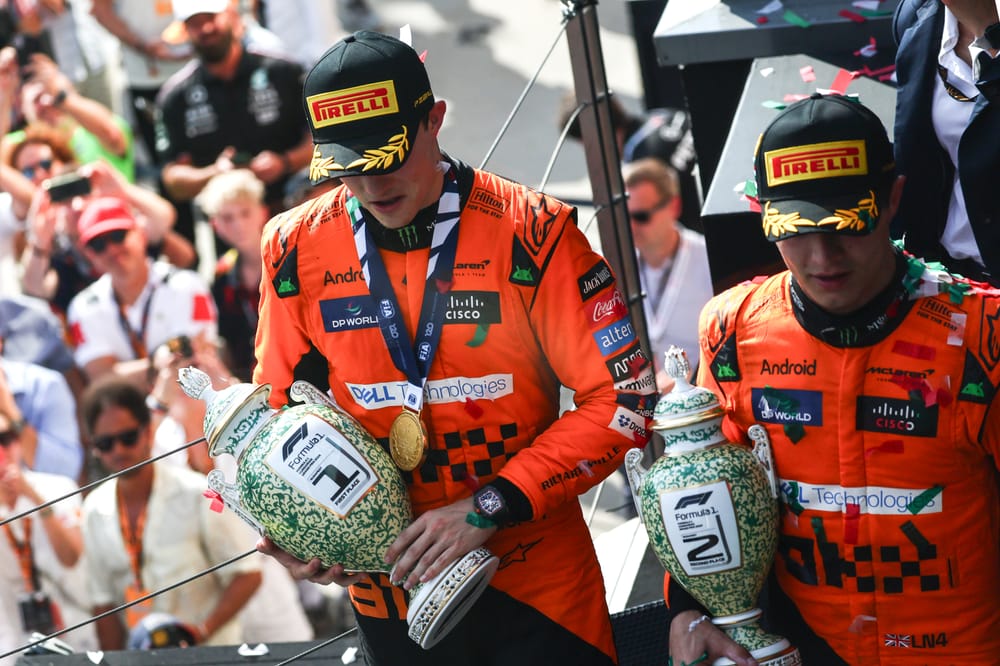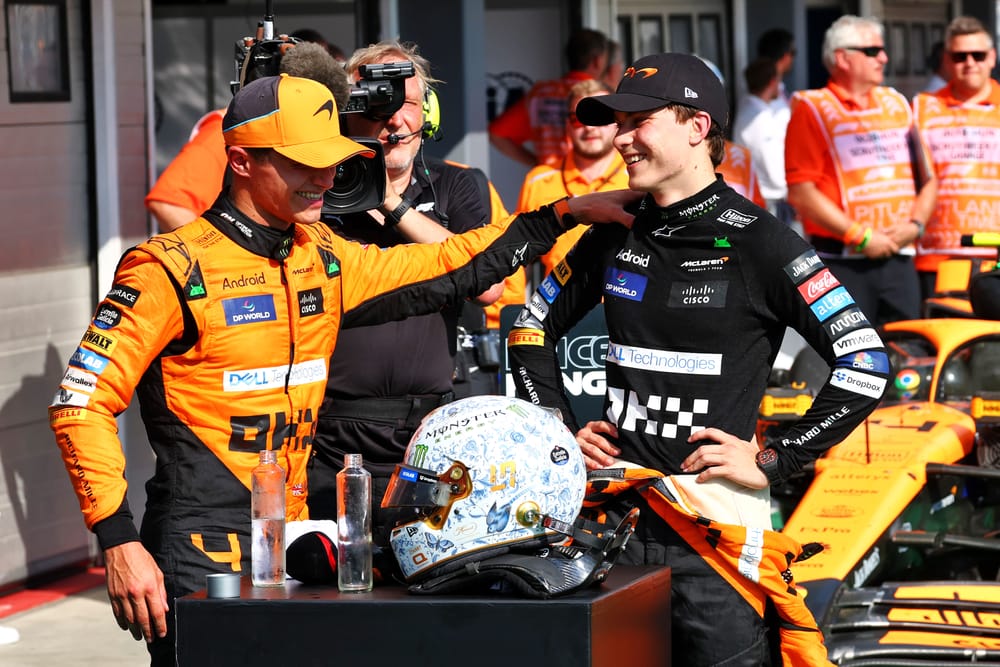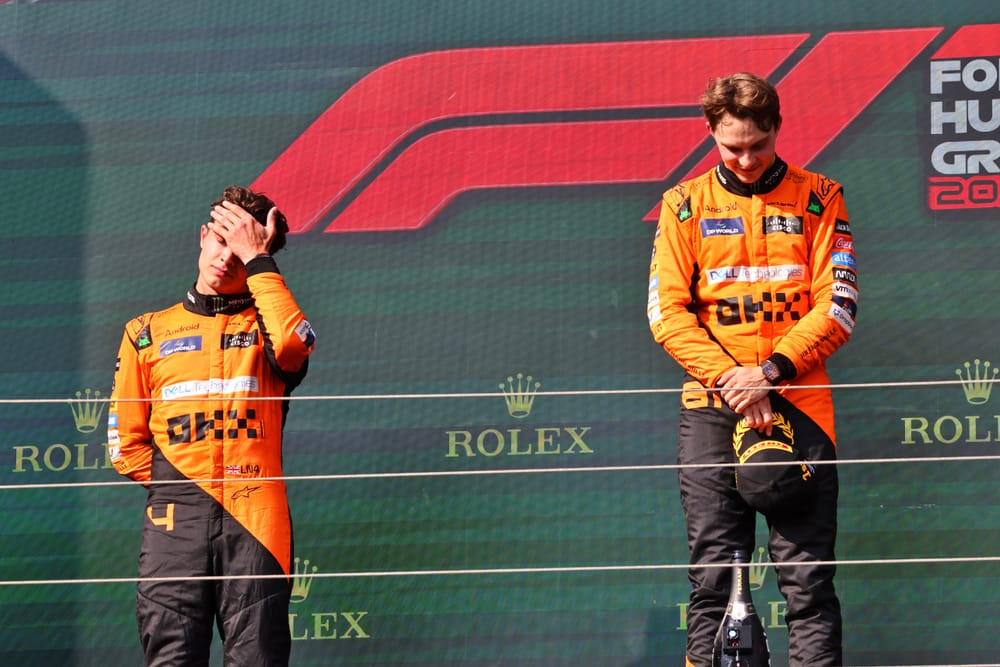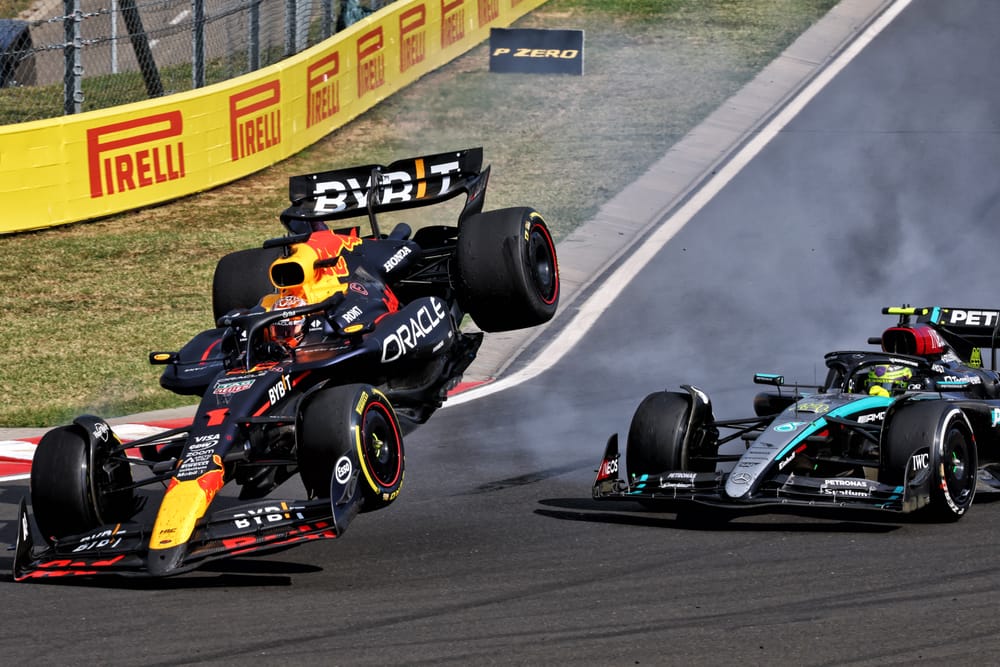Up Next

The severity of the test McLaren just passed at the Hungarian Grand Prix can be best conveyed by team boss Andrea Stella’s words post-race: “The interest of the team comes first - if you mess up on this matter, you cannot be part of the McLaren Formula 1 team.”
As Lando Norris wrestled with the instruction to let team-mate Oscar Piastri back by into the lead, having undercut his team-mate because of McLaren’s strategic choice at the final round of pitstops, he would have been aware of the consequences of defiance.
Even though Stella’s not necessarily saying in hindsight that a single bad act would have led to Norris being dropped, this incident was a test of the ethos behind this era of McLaren.
Would Norris fail to live up to a core Stella principle? Would the team’s authority be undermined as a result? Would it compromise trust between the team and driver, and the two team-mates?
As it was, Norris ceded. Eventually. Stella insists he had no doubts that would be the case: “I know Lando enough. I know when you have a race driver and you deal with a race driver, sometimes you have to communicate to all the sides that exist inside a race driver, but I know well enough that inside Lando we have the race driver and the team player.”
All fair, but if there was not any doubt on the pitwall, then race engineer Will Joseph would not have had to be so insistent. That’s probably where needing to “communicate to all the sides that exist” comes in.
McLaren knew it would have to urge Norris to respect what Stella calls a “fair” decision by the team, even if it was confident he would comply.
It was not a perfect situation by any means. And it was self-inflicted, almost consciously. McLaren brought the problem on itself by the timing of its final pitstops, bringing Norris in early to cover Lewis Hamilton and Charles Leclerc.
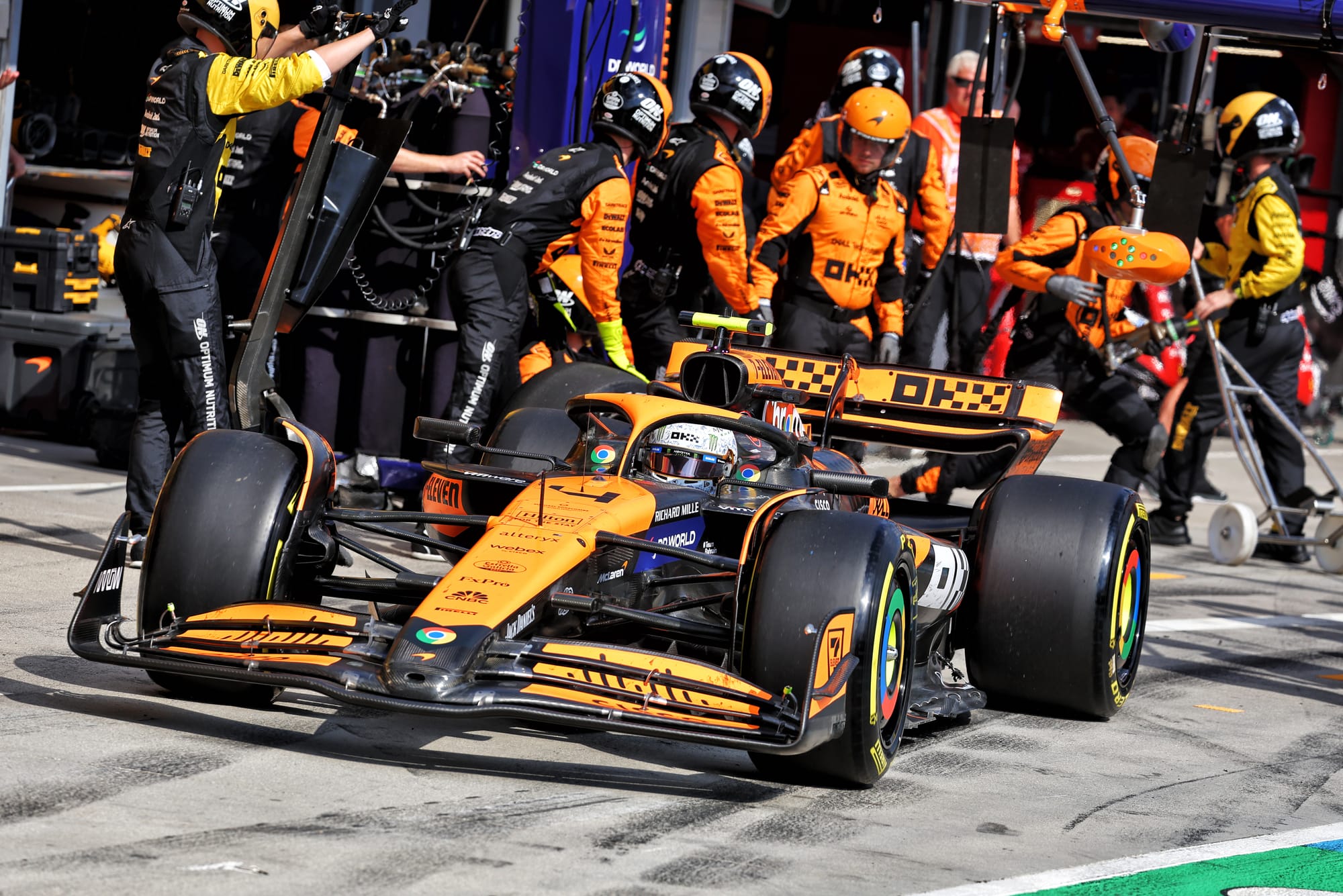
While this seemed unnecessary given the gap was big enough not to need to do this immediately, Stella explained that it was to avoid the pitstop being too high-pressure.
Waiting another lap or two would have meant the pitstop needed to be perfect and - armed with that confidence that even if Norris did undercut Piastri they would just be able to invert the positions again - the easier choice overall was to keep the pressure away from the pit crew and control the scenario from the pitwall.
Norris’s delayed compliance meant this ended up more stressful than hoped. It would have been even more agitating had he followed through with his original plan to wait until the final lap.
Again, lessons to be learned. Did McLaren really need to pit Norris when it did? Should Piastri have been brought in sooner? Was Norris philosophically in the right but guilty of spending too long proving his point, and did he therefore make this play out more publicly and dramatically than it should have?
That’s for McLaren to debrief and determine. Stella felt that the right principles won out “to generate what was the right thing to do for the team, for Oscar and for Lando”.
“We are very happy from this point of view,” he said.
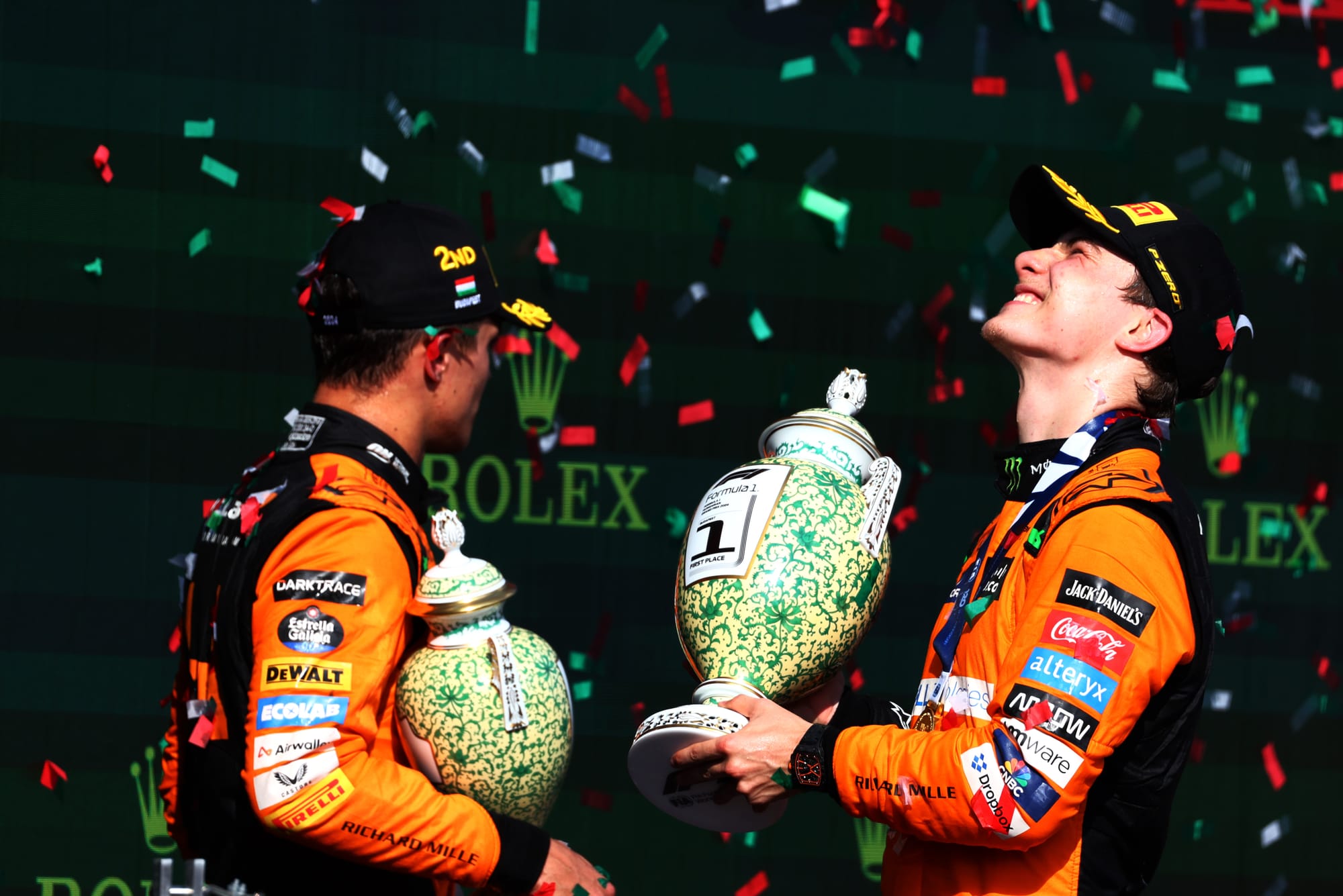
“There's no race driver that's such by nature that would say: 'OK, team, when are we going to do that?' They always hope. They are P1 in a Formula 1 grand prix. They hope, 'Oh, maybe the team will let me get it'.
“But we were very clear already before the race, so it's a situation that I think it proves, it shows and it demonstrates once again [what is required] to be part of the McLaren Formula 1 team.
“These are the values. Sometimes they conflict with some instincts of a race driver. But the values, the culture and the good of the team stay always the most important thing.”
And if we return to those fundamentals of Stella’s McLaren, perhaps the big victory here is that Norris did comply, the team culture was preserved, and McLaren has shown it can handle a unique challenge.
A great car and a great driver line-up always bring the risk of trouble and McLaren faces a unique predicament compared to its F1 rivals for the rest of 2024.
McLaren’s MCL38 does now look like the best all-rounder of the 2024 cars and, in Hungary, was also the outright fastest in both qualifying and the race. In Norris and Piastri it has two drivers who will keep starting at the front and will race for wins and podiums. They are likely to keep being in conflict.
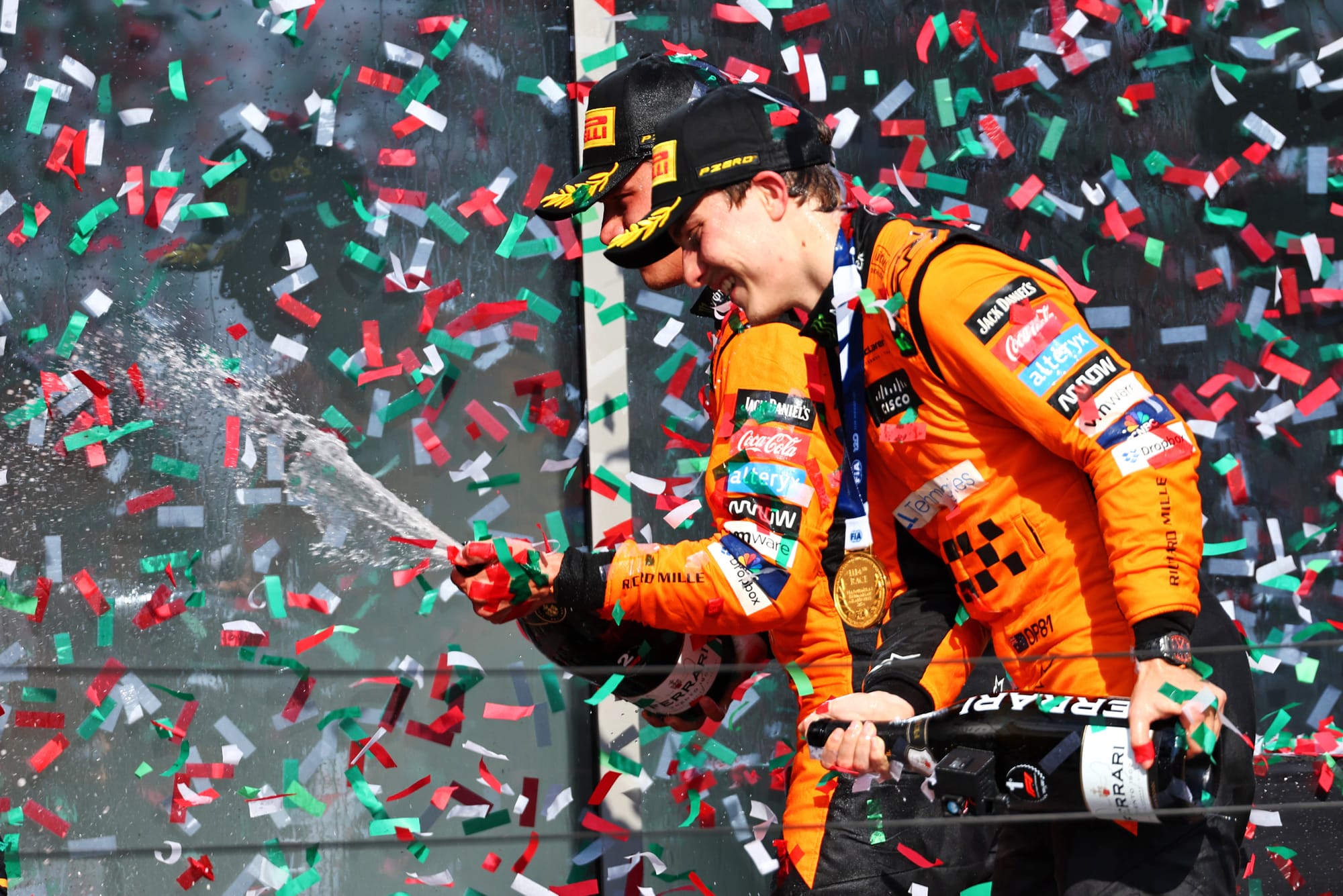
That alone is not particularly special but McLaren’s the only team at the front with a consistently strong pairing that it is keeping beyond this season. Ferrari and Mercedes have two drivers capable of warring with each other but at least they don’t have to concern themselves with sustaining it for much longer. And Red Bull’s only got one car in the mix at the moment.
For McLaren to survive and thrive in this situation, without its own drivers warring with each other, to take advantage of a genuine shot at winning the constructors’ championship, it needs everybody on the same side.
Likewise the clash of priorities - the team’s interest versus the individual driver interest - is very tough to manage. It needs strong leadership and total buy-in from those involved. McLaren must be sure its drivers will follow orders, Piastri needs to know he is not just a number two, and Norris has to have confidence that if he will sacrifice his own interests in the short-term (seven points in a very long-shot championship bid) he will get it back with interest in the future when they are fighting with each other and McLaren/Piastri owe him one.
This was all tested on Sunday but nothing was broken. That’s really important. Stella says that “this becomes part of the way we go racing and that's why we invest so much in culture, in values and in the mindset - because we want to be able to manage this situation if we want to be in the championship with Lando, with Oscar and with McLaren”.
Some will argue that McLaren needs to back Norris in the drivers’ championship. Some will even say it should have done so already. Stella believes McLaren is in a “lucky” position not to need to have a number one or number two driver but, pragmatically, says if the circumstances dictate it later in the season then this will need to be reassessed.
Until then, McLaren is standing by the approach that Stella says is “deep in our ethos”, that “we race fair, and if one of the two drivers gains on merit a result, this is protected”.
“Maybe if it's the last couple of races and there's a strong championship interest for one of the two drivers, we may revise this,” Stella accepts.
“But what I'm expecting is the other driver is coming to me and saying, 'If you need my help, with the other driver, because he's in the championship competition, I'm available'. And I think you build this ethos if you manage days like today in a fair way, like I think we have done.
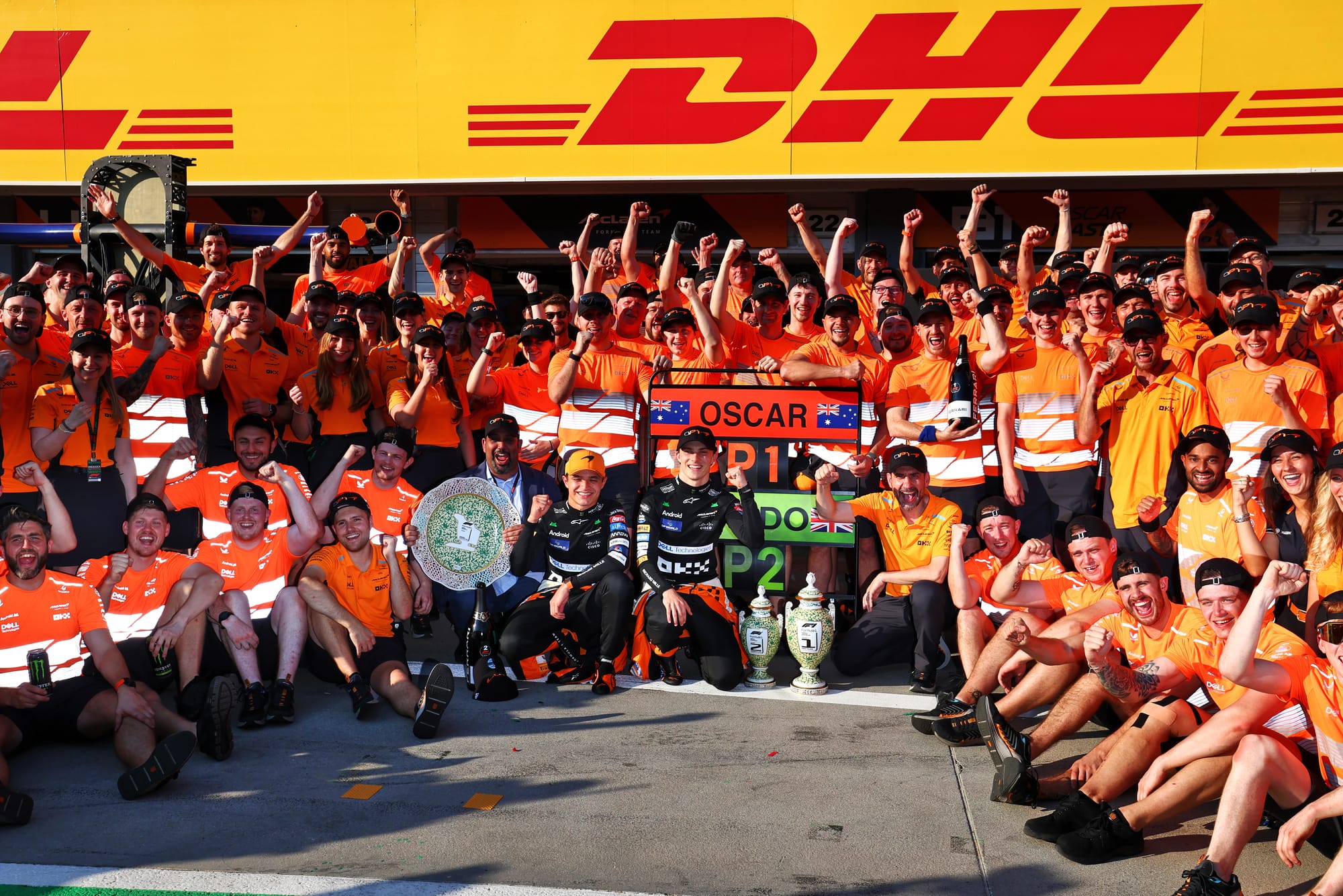
“This may give a lot of material for rumours and media [stories], that's fair enough, that's racing. To be honest I enjoyed this as a spectator or as a fan when these things were happening even when I was not in Formula 1.
“That's fair enough. But please acknowledge that we just did what was fair. And this is what I want the entire team at McLaren to realise, and hopefully our fans as well.”

